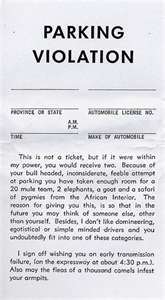Innovative technology is making it easier to find and pay for parking
 |
FREDERICKSBURG, VA--September 18, 2013: The Global Parking Association Leaders (GPALs) Summit, a group comprised of parking associations around the world, recently surveyed parking professionals from 21 countries. The results were revealed last week at the European Parking Association (EPA) Congress in Dublin, Ireland.
“This is the first time parking associations around the world have collaborated to identify industry trends, and it is clear that we share many of the same challenges and opportunities”
The majority of parking facility owners, operators, and managers polled listed the move toward innovative technology as the leading industry trend. Cited were GPS and mobile phone technologies, electronic payment, sensor space monitoring systems, and a shift toward accommodating electric vehicles.
Sustainability proves to be a broadly-shared global concern, with most respondents saying the greatest environment benefit comes from on- and off-street guidance systems that enable drivers to find parking faster, reducing carbon emissions.
“This is the first time parking associations around the world have collaborated to identify industry trends, and it is clear that we share many of the same challenges and opportunities,” says Shawn Conrad, CAE, executive director of the U.S.-based International Parking Institute (IPI), the world’s largest parking association.
While decision-makers’ attitudes toward parking appear to be positively shifting around the world, most respondents feel more collaboration is needed, particularly between parking professionals, urban planners, and local government officials.
Most of the countries surveyed listed traffic congestion as having a significant societal influence on parking. One-third of those surveyed believe that parking’s greatest future challenge will be dealing with this scarcity of space and resources and rising mobility costs in urban areas.
Other societal influences on parking included economic pressures on retailers, increased fuel prices, the focus on environment and sustainability, and the desire for more liveable, walkable communities.
The Global Parking Survey is not a statistically projectable study, but Conrad explains it’s a valuable snapshot and the beginning of knowledge-building and future collaborative projects among parking professionals around the world.
The surveys were conducted by individual country parking associations and analyzed by the Washington, D.C.-based Market Research Bureau and Giuliano Mingardo, a senior transportation researcher at Erasmus University in Rotterdam.
For a list of participating countries, and to view a downloadable report on survey results, visit Parking Report.


